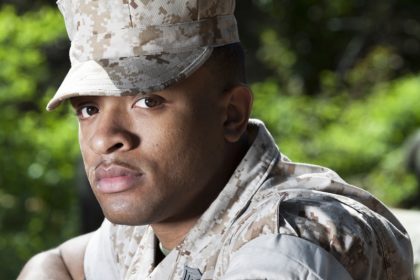
War changes people– the families of those who don’t survive it, civilians living in a war zone or the soldiers who were able to return home, some of whom return badly broken. Sadly , some of the changes are internal; some soldiers return home with PTSD (Post Traumatic Stress Disorder). PTSD is a mental health problem that has to be addressed for a person to return to a “normal” civilian life.
While it can absolutely happen to individuals who are not in a war, it is recognized to be a serious concern for combat veterans. Some soldiers with PTSD look for positive avenues to rescue themselves, such as Crissy Ashcroft who proudly served in the Australian military. You can see her effort to move forward if you click on the clip below.
However, some veterans with PTSD have been linked to arrests and criminal charges. To cope with the pain of PTSD they can turn to alcohol marijuana, or other drugswhich means they can get involved in criminal behaviors such as: traffic violations like reckless driving, domestic violence, other assaults, drunk driving, drug possession and firearms offenses.
Veterans’ Courts
When these veterans appear in court, paradoxically, judges have traditionally given them harsher sentences than to those who have not served. In the United States where the Department of Justice studied incarcerated veterans, it concluded that there was a sentencing disparity of approximately one additional year imprisonment for a veteran as opposed to a non-veteran. Giving longer sentences to those who have served their country seems wrong.
But there is an even better way to return these wounded veterans to society–Veterans Treatment Court (VTC). Veteran’s treatment court is a specialized docket for veterans who have been arrested and convicted of a crime. Veterans Courts identify veterans, connect them to services and link them to a support network so as prevent repeat behavior thus reducing the number of imprisoned vets. These courts are an important step in recognizing the mental health component for recovery.
There are approximately 400 VTCs in the United States but none in any other countries.
More Information
For more information on VTCs, check out the links below.
http://justicespeakersinstitute.com/veterans-treatment-courts-supporting-our-returning-heroes/
https://www.justicespeakersinternational.com/veterans-treatment-courts/
